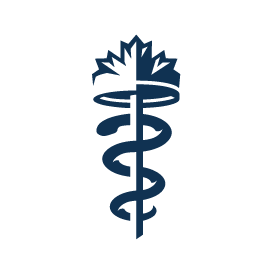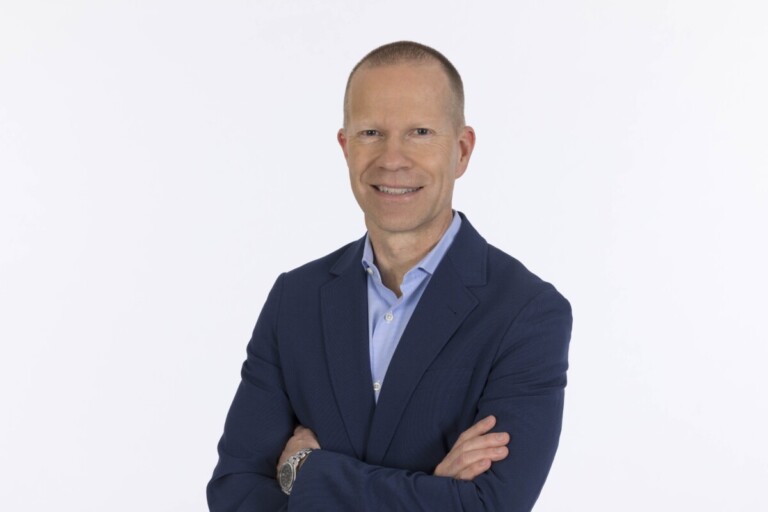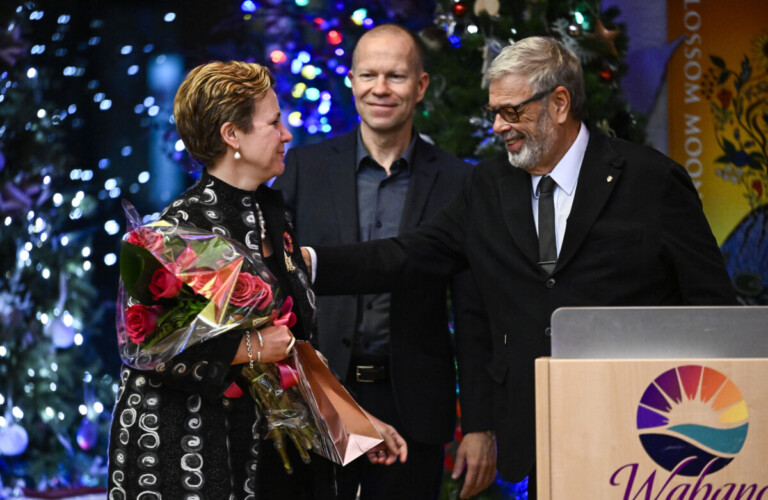- My MOC
- Directory
Menu

 5 MIN READ
5 MIN READ
For close to 25 years, Brian Hodges, MD, FRCPC, has been an active member of the Royal College, lending his expertise, guidance and leadership to a myriad of committees and task forces — from specialty education to finance to research.
Dr. Hodges is the executive vice-president of education and chief medical officer at the University Health Network. He is a professor in the University of Toronto’s Temerty Faculty of Medicine and at the Dalla Lana School of Public Health, as well as a senior fellow at Massey College.
Stepping into his newest role as our 47th President, Dr. Hodges shares insights into his background, his priorities for the Royal College over the next two years, and how these priorities aim to address some of the key challenges facing Canada’s health care system and workers.
 Royal College President Dr. Brian Hodges (Photo: University Health Network)
Royal College President Dr. Brian Hodges (Photo: University Health Network)
I would like them to know that I’m a proud Fellow of the Royal College and a practising psychiatrist and teacher. I draw energy from time spent with patients and learners. In my day-to-day role as chief medical officer at one of Canada’s largest health care networks, I am close to the simultaneous crises facing Canada — recovery from the pandemic, the opioid crisis, and the most severe health human resource shortage in decades. And, when I am not with patients or learners, my passion is medical education research.
I would also like them to know that I identify with the LGBTQ community. I have been together with my partner Robert, a health systems researcher, for close to 40 years. I grew up in Ontario surrounded by education and health care; my mother was a teacher and my father a dentist. Though my immediate family was Anglophone, my grandmother’s was Franco-Ontarian. I regretted not being able to participate in conversations so, during my early faculty years, I used a sabbatical to learn French. Though my French is far from perfect, it brings me a great deal of pleasure to collaborate and teach en français.
I am so excited to get out in the world again! We have spent three years inside our health care silos, doing our very best to care for patients during the pandemic. However, we lost much of our connectivity, weakened our collaborative networks and diminished the depth of our personal relationships. There are incredible innovations in health care education underway across Canada and I am excited to re-engage with folks to reflect and share ideas about the future of health care and education.
 Dr. Hodges, centre and Dr. Reznick, right, present a gift to Dr. Moffatt-Bruce at a Royal College Council reception in December 2022.
Dr. Hodges, centre and Dr. Reznick, right, present a gift to Dr. Moffatt-Bruce at a Royal College Council reception in December 2022.
Dr. Susan Moffatt-Bruce has been an outstanding CEO. As she transitions to her new role, top of mind for me and the Royal College Council is the identification of the next CEO to build on Susan’s incredible work. I’m very pleased that Dr. Ian Bowmer agreed to be our interim CEO. Ian is a wonderful, generous, and collaborative leader. His guidance will help ensure the Royal College carries on this excellent work during the transition. We are moving forward quickly with a diverse search committee strongly representative of our Fellows, Residents and Public Members.
A major priority is the review and adaptation of Competence by Design (CBD). We are proud to be the first country in the world to have implemented a version of competence-based education at a national level. Much has been learned during phase one implementation. Now, the Royal College is harnessing the expertise of medical educators across Canada, and working closely with those closest to resident education, to understand what is working well and to identify the opportunities to optimize CBD. It is critical that the competence-based model is educationally effective but also efficient within our health care environments, strained as they are by enormous clinical demands and health professional shortages.
Next, across Canada, there is an emerging consensus that continuing professional development should focus on quality of care. In collaboration with our provincial regulatory colleges, the Royal College is reinventing the Maintenance of Certification Program to better serve Fellows and to link it more closely to providing outstanding patient care.
The health human resource situation is another important priority. We are living through one of the most severe crises in decades and the problem is global, not Canadian. To help address this crisis, the Royal College has made tangible changes, including accelerating our pathways for practice-eligible international medical graduates and reducing some of the many steps required for certification in Canada, and there is more to come. At the same time, we must safeguard the high standard that Canada has always maintained for specialist physicians. We will continue to evolve pathways and processes to help internationally trained physicians access the Canadian system faster, while recognizing our ethical responsibility to understand the impact of new models on the shortage of physicians in low-income countries.
On the international theme, I am pleased that Royal College International continues to develop an array of collaborations with low-, middle- and high-income countries around the world. Royal College models of education, examination, accreditation and the CanMEDS framework are valued across the globe. I believe that a “generous” Royal College is one that is oriented to working with partners internationally, to learn as much as we give and with the goal of improving medical education globally.
Finally, and perhaps most importantly, we will continue the tremendous work that Dr. Moffatt-Bruce and her team have championed with partners from across Canada to advance equity, diversity and inclusion, in particular advancing Indigenous health and the fight against anti-Black racism. The Royal College will continue to prioritize the integration of these and other dimensions of social accountability into all aspects of the Royal College’s functions, including examination, accreditation and educational development. With the refresh of the CanMEDS Framework in 2025, we have a terrific opportunity to enhance the Advocate role in particular. We will work closely with our colleagues at the College of Family Physicians of Canada who are equally energized by this work.
Our Digital Member Experience Transformation initiative will enhance the experience of Fellows and Resident Affiliates, providing seamless digital access to Royal College services, including enhanced learning and a more user-friendly Maintenance of Certification Program dashboard. The Royal College will continue to develop resources and opportunities for Fellows and Residents to participate in popular initiatives such as our work on artificial intelligence, planetary health, and equity diversity and inclusion and accessibility.
It has been a great pleasure to support Dr. Reznick in the past year in my role as President-Elect. I have known Richard for many years and I value his extraordinary leadership and wise counsel. Richard is an incredible leader who is passionate about high quality education, and leads changes based on evidence. He led the Royal College during the most difficult years of the pandemic and never lost focus of the experience of those who work with and for the Royal College – our Fellows, residents and staff.
The biggest challenge facing us is the health human resource crisis. I have already talked about the important work underway at the Royal College to accelerate pathways for practice-eligible international medical graduates and to reduce some of the many steps required for certification in Canada.
But related to this issue is another big challenge: wellbeing versus burnout. To address this, the Royal College is building a relationship with the National Academy of Medicine to enable new initiatives to support wellbeing and mitigate burnout. While there are no simple solutions because wellbeing combines individuals and systems factors, many leading practices have emerged in institutions across North America. The Royal College must be a champion for wellbeing, from medical school all the way to retirement.
Dr. Hodges will serve as Royal College President from 2023-2025. Read Dr. Hodges’ full biography.